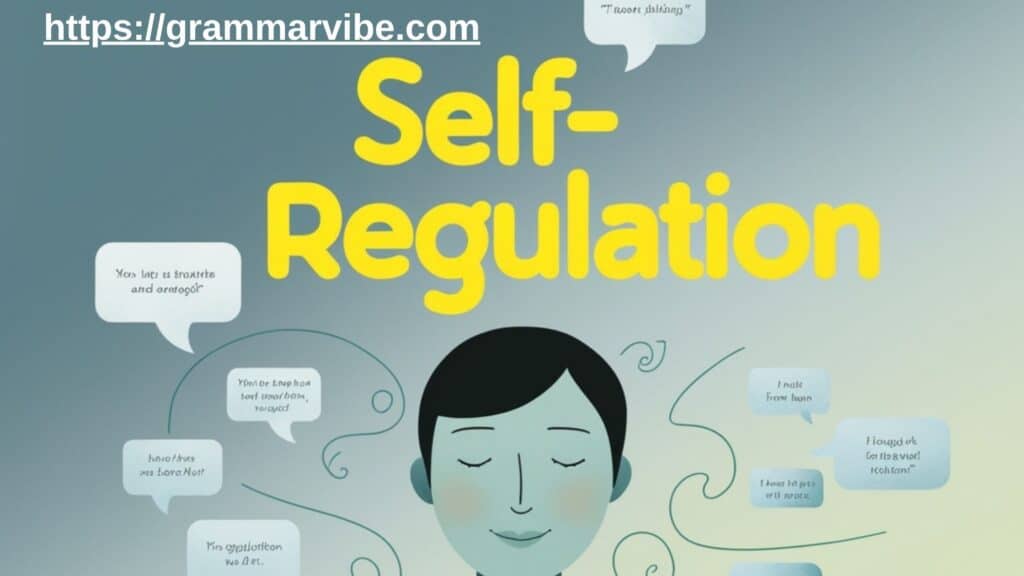Emotional intelligence (EI) is an essential skill for success in both personal and professional life. It helps individuals understand and manage their own emotions while also navigating the emotions of others. While the term “emotional intelligence” is widely recognized, there are numerous synonyms that highlight different aspects of this multifaceted skill.
Each synonym reflects a unique angle, whether it’s about understanding others’ emotions, building meaningful relationships, or regulating one’s emotional responses. Here, we will explore 15 synonyms for emotional intelligence and provide practical examples for each.
Social Awareness
Social awareness is a core aspect of emotional intelligence, referring to the ability to perceive and understand the emotions of others in various social situations. People with high social awareness are adept at recognizing social cues and responding to them appropriately.
Example Scenario: Imagine you’re in a meeting with colleagues, and one of them seems uncomfortable, avoiding eye contact. You recognize this and gently ask if they would like to share their thoughts. This shows your social awareness and sensitivity to their emotional state.
Empathy
Empathy is the ability to understand and share the feelings of others. It goes beyond simply recognizing emotions—it involves feeling what the other person is feeling and responding with care and compassion.
Example Scenario: In an email to a friend going through a tough time, you might write, “I can only imagine how challenging this must be for you, and I want you to know that I’m here for you. Please let me know if there’s anything I can do.” This message conveys empathy by acknowledging the other person’s emotions and offering support.
Emotional Agility
Emotional agility refers to the ability to manage one’s emotions in response to challenges, allowing for flexibility in thinking and behavior. Individuals with emotional agility are able to adapt to changes and approach stressful situations with a positive mindset.
Example Scenario: You are leading a project at work, and unexpectedly, a team member falls ill. Instead of panicking, you calmly adjust the schedule and delegate tasks. This is a demonstration of emotional agility, as you manage your emotions and maintain focus on the task at hand.
Self-Regulation

Self-regulation is the ability to control your emotions and impulses, particularly in stressful situations. People with strong self-regulation skills can manage their reactions, avoid impulsive behavior, and stay focused on long-term goals.
Example Scenario: During a heated discussion at work, you feel frustration building up. However, instead of lashing out, you take a deep breath and calmly express your point. This response demonstrates self-regulation, as you manage your emotional reaction and maintain composure.
Interpersonal Skills
Interpersonal skills refer to the ability to interact effectively with others. These skills involve communication, empathy, conflict resolution, and understanding nonverbal cues, all of which are integral to emotional intelligence.
Example Scenario: In a team setting, you listen actively to your colleagues’ ideas and provide constructive feedback. This helps foster an open and respectful environment, highlighting your strong interpersonal skills.
More for you: 15 Other Ways to Say “It Was a Pleasure Working with You”
Active Listening
Active listening is a crucial part of emotional intelligence, involving fully concentrating, understanding, responding, and remembering what the other person is saying. It shows respect for the speaker’s thoughts and feelings.
Example Scenario: In a one-on-one meeting with a colleague, you nod in agreement and paraphrase what they’ve said, ensuring you understand their perspective. This technique of active listening not only helps clarify ideas but also builds trust and rapport.
Emotional Resilience
Emotional resilience is the ability to bounce back from adversity, setbacks, or challenges. It involves staying strong in the face of stress and maintaining a positive outlook despite difficulties.
Example Scenario: After receiving negative feedback on a project, instead of getting discouraged, you view it as an opportunity to improve and develop new strategies. Your emotional resilience helps you learn from the experience and move forward.
People Skills
People skills encompass the abilities needed to interact effectively with others, including communication, empathy, and understanding group dynamics. These skills are essential for fostering strong relationships and collaboration.
Example Scenario: At a networking event, you strike up a conversation with a new acquaintance, asking thoughtful questions and showing genuine interest in their answers. Your people skills help you build rapport and connect with others.
For your interest: 15 Other Ways to Say “I Was Born and Raised”
Adaptability
Adaptability refers to the ability to adjust to new conditions, overcome challenges, and learn from different experiences. It is a key aspect of emotional intelligence, allowing individuals to thrive in changing environments.
Example Scenario: When a project unexpectedly shifts in direction, you adapt quickly by reworking your plans and staying positive. Your adaptability ensures that you continue to move forward, even in the face of uncertainty.
Emotional Literacy

Emotional literacy is the ability to understand and express your emotions effectively. It involves recognizing your feelings, labeling them accurately, and knowing how to communicate them to others.
Example Scenario: In a conversation with a team member, you express how you’re feeling about the project’s progress by saying, “I’m frustrated with the delays, but I’m also excited to see how we can push through this.” This is an example of emotional literacy, as you recognize and articulate your emotions.
Social Intelligence
Social intelligence refers to the ability to navigate complex social environments and understand the dynamics of interpersonal relationships. It involves recognizing social cues, knowing how to respond, and adapting your behavior in different contexts.
Example Scenario: At a dinner party, you notice a guest seems uncomfortable in the conversation. You adjust the topic to something more inclusive, demonstrating your social intelligence by recognizing and addressing the social dynamics.
You might also like: 15 Other Ways to Say “Including But Not Limited To”
Relational Intelligence
Relational intelligence focuses on the ability to build, manage, and sustain relationships. It is an essential component of emotional intelligence, helping individuals foster trust, resolve conflicts, and navigate social complexities.
Example Scenario: During a collaborative project, you make sure everyone’s ideas are heard, ensuring that all team members feel valued. Your relational intelligence helps strengthen the relationships within the team and fosters a collaborative environment.
Affective Intelligence
Affective intelligence refers to the capacity to recognize and respond to emotional cues, both in yourself and others. It involves understanding how emotions influence behavior and making decisions based on emotional awareness.
Example Scenario: As a manager, you notice that one of your team members is unusually quiet during meetings. You approach them privately and ask if everything is okay. Your affective intelligence allows you to recognize emotional cues and provide support.
Emotional Competence
Emotional competence refers to the skills required to understand and manage emotions effectively. It encompasses several components, such as emotional awareness, regulation, and the ability to empathize with others.
Example Scenario: In a team discussion, you express your thoughts clearly while also being mindful of your team members’ reactions. Your emotional competence ensures that you communicate in a way that respects everyone’s emotions and promotes a productive dialogue.
Check out this: 15 Other Ways to Say “I Am Interested in This Position”
Social Perception
Social perception is the ability to interpret and understand the social cues and emotions of others. It involves recognizing body language, facial expressions, tone of voice, and other nonverbal signals.
Example Scenario: During a team meeting, you pick up on a colleague’s nervous body language and decide to follow up with them later to offer support. Your social perception enables you to identify emotional signals that others might overlook.
Table of Synonyms for Emotional Intelligence
| Synonym | Definition |
|---|---|
| Social Awareness | The ability to recognize emotions and social cues in others |
| Empathy | Understanding and sharing the feelings of others |
| Emotional Agility | Adapting to emotional challenges with flexibility and resilience |
| Self-Regulation | Managing one’s emotions, thoughts, and behaviors |
| Interpersonal Skills | Effective communication and relationship management |
| Active Listening | Fully engaging with and understanding what others are saying |
| Emotional Resilience | Bouncing back from adversity with strength and composure |
| People Skills | The ability to communicate and collaborate effectively |
| Adaptability | Adjusting to changes and new circumstances |
| Emotional Literacy | Understanding and expressing emotions clearly |
| Social Intelligence | Navigating social environments with awareness of dynamics |
| Relational Intelligence | Building and maintaining meaningful relationships |
| Affective Intelligence | Responding to emotional cues in self and others |
| Emotional Competence | Mastery of skills related to emotional awareness and regulation |
| Social Perception | Interpreting social cues and emotions accurately |
Conclusion
Emotional intelligence is essential for personal and professional success, and its synonyms highlight various aspects of this powerful skill. From empathy and social awareness to self-regulation and active listening, each synonym emphasizes a unique component that contributes to emotional growth and effective communication. By developing these abilities, individuals can build stronger relationships, navigate social complexities, and create positive environments.
Whether you’re looking to improve your leadership skills, enhance your interpersonal interactions, or foster a collaborative atmosphere, understanding and cultivating emotional intelligence is key to achieving success in all areas of life.

Kyren Paul is an experienced blogger and the creative mind behind “Grammar Vibe.” With a passion for the nuances of English grammar, he brings clarity and insight to everyday language topics, making grammar accessible and engaging for readers of all levels.











Leave a Comment